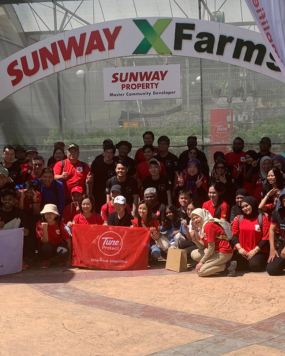Despite being a service to sustain our essential needs, current agriculture practices makes the industry one of the least sustainable and most polluting sectors in the workforce. It is our responsibility to give back to the planet that we take so much from, and Sunway XFarms is committed to sustainable development as we grow.
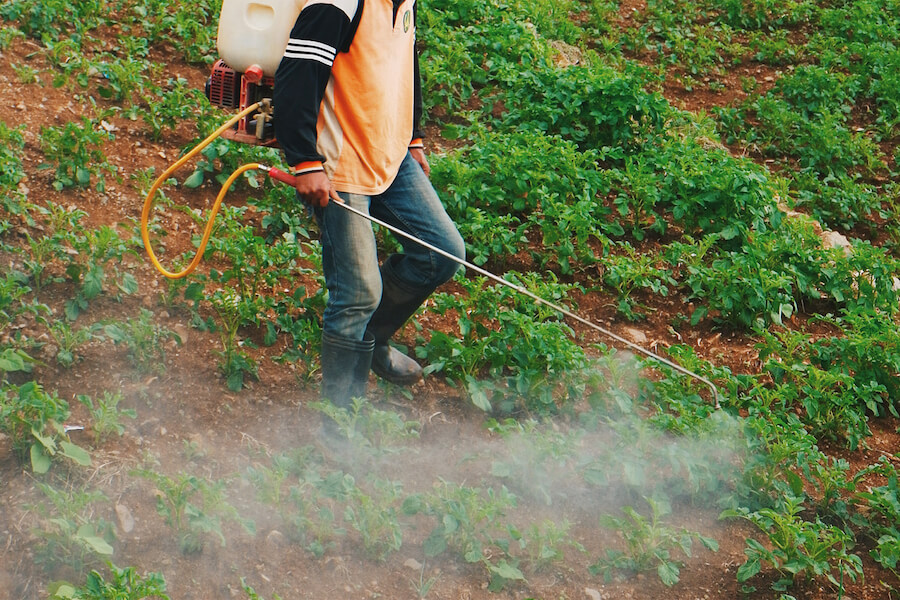
Chemicals
Chemicals have been used to boost plant growth and drive away pests. However as these chemicals are washed off, it contaminates soil, air, fresh water, marine life, as well as non-target organisms such as birds and fish.
Not only does it have detrimental effects to the planet, but it poses high risks to the workers who have to handle toxic chemicals, as well as to consumers.
Sunway XFarms has pledged to avoid all chemical pesticides, herbicides, and fertilizers. We build indoor farms & greenhouses to avoid pests and use sticky traps to entrap those small enough to pass through the netting.
Water
Agriculture is the largest using sector of water on top of being one of its largest polluters. Globally, about 70% of fresh water is used by the agriculture sector to water vast lands of crops daily. At the current pace, we may run out of fresh water by 2040.
Smart farming uses up to less than 90% of water compared to traditional farming. How? Water travels in a circular system through interconnected channels rather than a single time over a large surface area. In comparison to soil-based farming which requires frequent watering, our water tank is only topped up once a week.
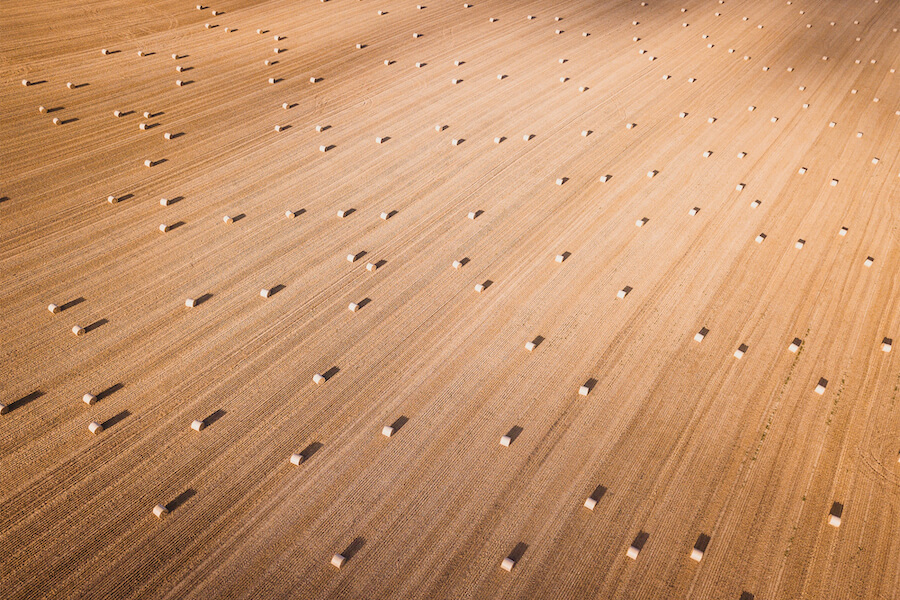
Land
Agricultural expansion is one of the biggest contributors to deforestation for land conversion. Currently, about 38% of global land surface is used by this industry, with one-third of that being used as cropland. As urban population grows over the years, more space will be needed as both living areas and cropland.
We integrate the two by setting up our farms in urban areas, specifically underutilized spaces. By growing vertically, we get to produce up to x10 more yield per sqft as well, making more with less. For indoor areas, our crops are further protected against pests and weather fluctuations, maintaining production quality and consistency.
Soil
Agriculture practices have had many negative impacts on soil including erosion, degradation, salinization, pollution, and many more. 25% of the world’s topsoil has been lost to intensive farming and studies have shown that at the rate we are going, we will run out of healthy topsoil in about 60 years.
Our farming systems do not use soil. Other than growing in water, we use cocopeat. By avoiding soil altogether we avoid issues of soil erosion & degradation.
We also make our own compost out of vegetable scraps, avoiding produce going into landfills and instead add the organic matter to soil in our surrounding areas and improve soil quality.
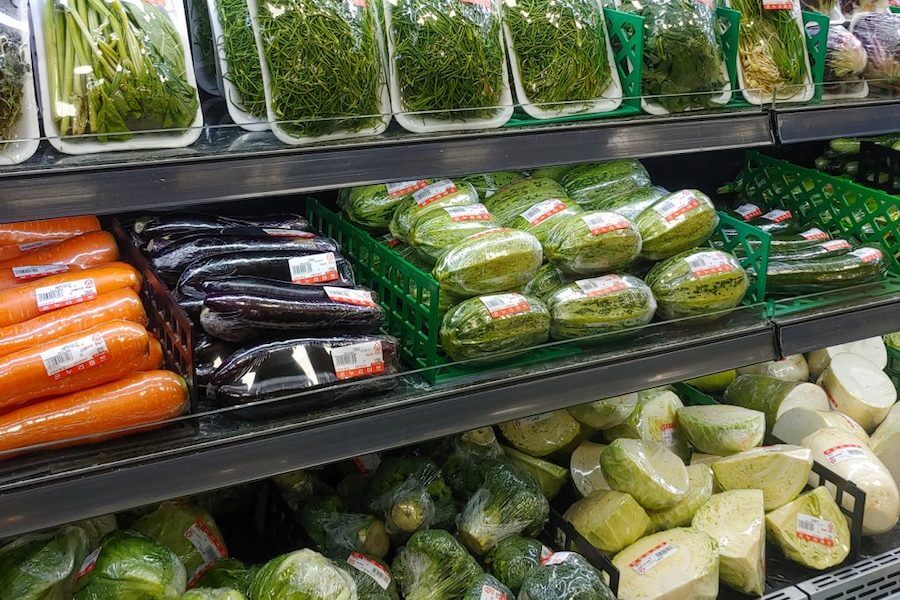
Packaging
Vegetables are often packed in single-use plastic to retain moisture post-harvest, protect it from the elements during transport from long journeys between farm and you, without adding a large cost in vegetable price.
By growing close to you and by consumer demand, we get to shorten the food journey from when it’s freshly harvested straight to you, as well as avoid overgrowing & overharvesting. With nothing else in between, we can avoid plastic packaging altogether. Self-pickups are highly encouraged as it gives you the choice to pass us a reusable bag each week, or a plastic storage box that you can put right in your fridge!
Energy Consumption
Less pressing (but still good to know) issues concern energy consumption in Agriculture. Energy is used in various forms such as machinery operation, tractor usage, production of agrochemicals & machinery etc.
It starts from growing and buying locally, which removes flight gas & miles out of the equation; and without using large areas of land, fuel and energy used in tractors and agrochemical production need not be counted for either.
While we do use lights for indoor growing, we are constantly looking to improve our consumption, including ways to optimize light usage by finding the equilibrium of how much our crops will need before additional energy becomes wasted.
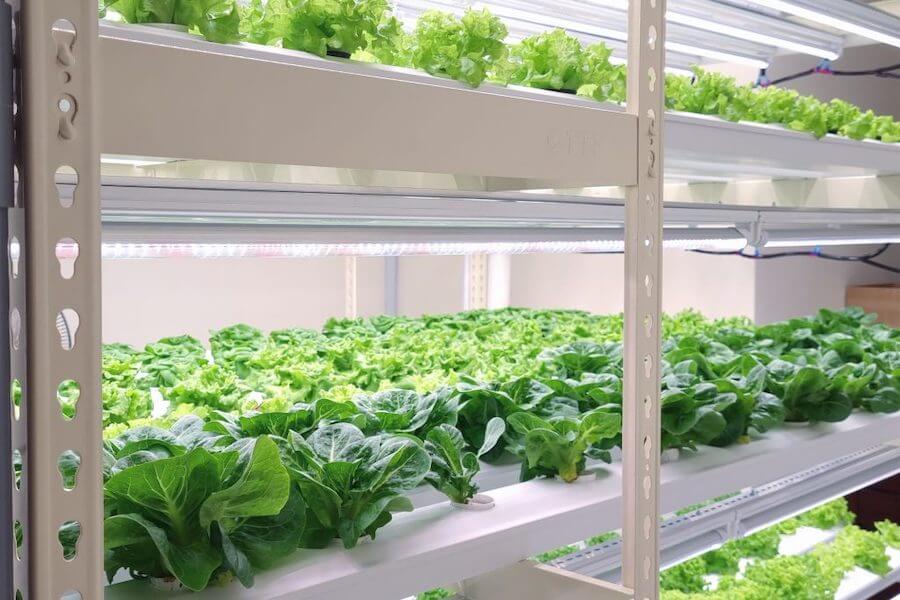
All in all, we are fully aware of the practices that agriculture needs to do better. Smart farming has allowed us to mitigate further environmental damage while being integrated into the increasing amount of urban areas. By taking proper action to address environmental issues, we can get higher crop productivity with reduced impact on natural ecosystems, less runoff of chemicals into rivers and groundwater, decreased use of water, fertilizer, and pesticides, which in turn keeps food prices down.
We are also grateful to for your support in choosing us, and highly encourage subscribing to your weekly vegetable harvest in order for us to minimize our farm wastage by growing the right amount!


